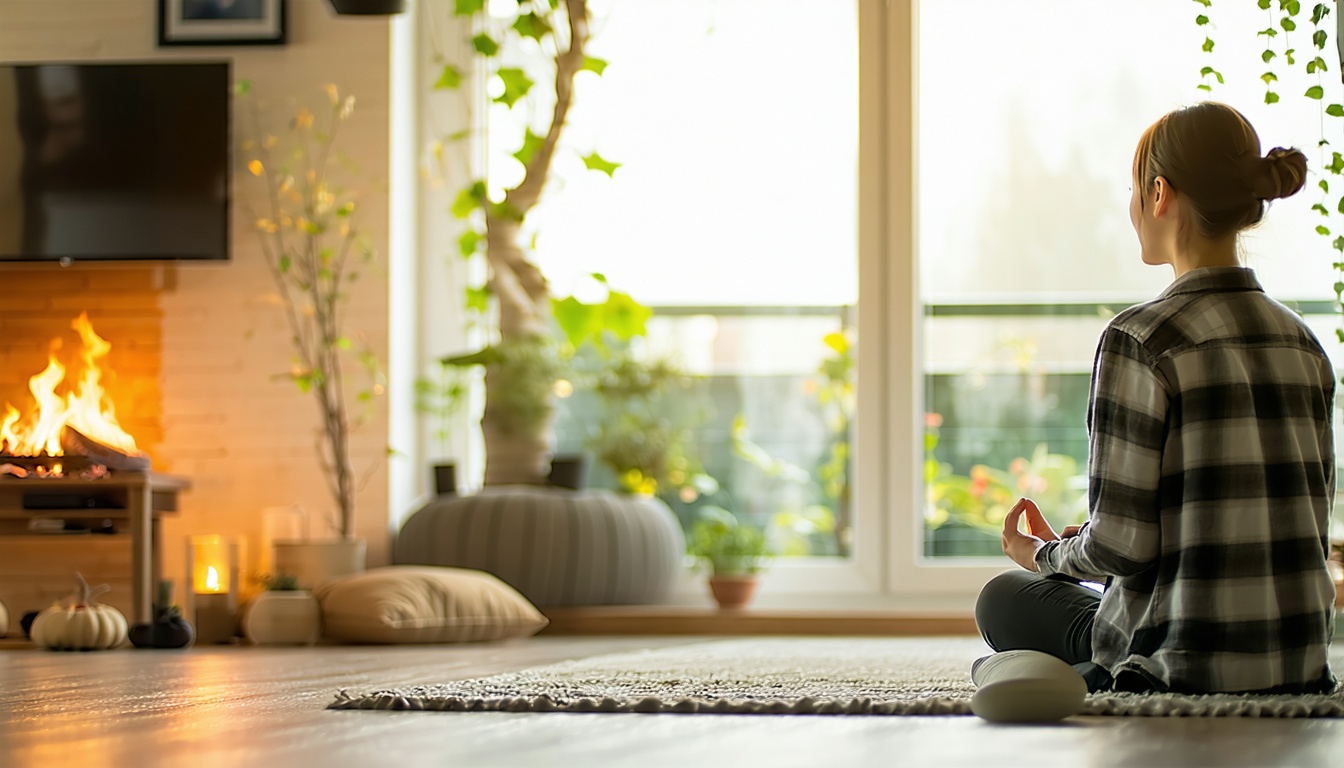Importance of Managing Social Anxiety
Understanding and managing social anxiety is crucial for improving quality of life and enhancing social interactions. By employing effective coping strategies for managing social anxiety in daily life, individuals can reduce symptoms and foster healthier relationships.
Understanding Social Anxiety
Social anxiety, often characterized by intense fear or anxiety in social situations, can be a debilitating disorder. Individuals with social anxiety may experience excessive self-consciousness, fear of judgment, and avoidance of social scenarios, which can prevent them from leading fulfilling lives. It is important to recognize the differences in anxiety disorders, as highlighted in our article on understanding the spectrum of anxiety disorders: from generalized anxiety to OCD. Additionally, resources addressing related issues such as separation anxiety in adults: recognizing symptoms and seeking help can provide context on how these conditions interact with social anxiety.
Impact of Social Anxiety
The impact of social anxiety extends beyond just individual experiences. It can influence personal relationships, professional growth, and overall mental well-being. Without proper management strategies, the disorder can lead to additional mental health challenges, including depression and more severe anxiety disorders. Data indicate that daily exercise can alleviate symptoms of anxiety and depression by stimulating the production of serotonin and endorphins, which help manage stress and elevate mood (Sidhu Health).
Moreover, developing a support network is fundamental. Engaging with therapy or supportive friends and family who offer non-judgmental encouragement can significantly mitigate social anxiety, making challenging situations more manageable (Sidhu Health). The importance of professional interventions, including therapies like Cognitive Behavioral Therapy (CBT) and medication, is significant, as these have proven effective in reducing social anxiety symptoms. For a deeper exploration of treatment options, refer to our sections on Cognitive Behavioral Therapy (CBT) and the role of medication in treating schizoaffective disorder.
In summary, understanding and effectively managing social anxiety can lead to improved social interactions and a better overall quality of life. Using established coping strategies and treatments can help individuals reclaim their confidence and navigate social situations more comfortably.
Lifestyle Changes for Managing Social Anxiety
Adopting healthy lifestyle changes is crucial in managing social anxiety effectively. We can implement several strategies in our daily lives to reduce anxiety and improve our overall well-being.
Prioritizing Sleep
Prioritizing sleep is fundamental for managing social anxiety. Adults should aim for seven to nine hours of sleep each night. Establishing a consistent sleep routine, which includes going to bed and waking up at the same time daily—even on weekends—can significantly improve sleep quality (Sidhu Health). Quality sleep helps regulate mood and reduces anxiety levels, making it easier to face social situations.
| Recommended Sleep Duration | Age Group |
|---|---|
| 7-9 hours | Adults |
Daily Exercise
Incorporating daily exercise into our routine can help alleviate symptoms of anxiety and depression. Activities, such as walking or jogging, stimulate the production of serotonin and endorphins, which are known to enhance mood and reduce stress (Sidhu Health). Regular physical activity can be an effective coping strategy for managing social anxiety in daily life.
| Type of Exercise | Benefits |
|---|---|
| Walking | Reduces anxiety, boosts mood |
| Jogging | Enhances serotonin production |
| Dance | Promotes social engagement |
Practice Yoga
Practicing yoga is another beneficial strategy for managing social anxiety. The combination of controlled breathing and physical focus in yoga has been shown to relieve stress and anxiety. Engaging in yoga regularly allows us to cultivate mindfulness while also improving our physical health.
| Yoga Benefits | Description |
|---|---|
| Stress Relief | Controlled breathing helps manage anxiety |
| Physical Focus | Promotes concentration and relaxation |
Building Support Networks
Developing a supportive network is essential for reducing social anxiety. Establishing connections with trusted individuals—be it family members, friends, or therapists—can provide comfort and guidance when facing challenging situations (Sidhu Health). A robust support system makes it easier to navigate social interactions, as these individuals can offer encouragement and understanding.
| Support Network Type | Advantages |
|---|---|
| Friends and Family | Emotional support, non-judgmental space |
| Therapists | Professional guidance, coping strategies |
By prioritizing sleep, engaging in daily exercise, practicing yoga, and building support networks, we can enhance our coping mechanisms for managing social anxiety effectively. These lifestyle changes contribute significantly to improving our mental health and well-being, allowing us to face daily challenges with greater confidence. For more information on effective strategies, consider exploring understanding the spectrum of anxiety disorders: from generalized anxiety to ocd.
Coping Strategies for Social Anxiety
Managing social anxiety can be daunting, but employing effective coping strategies can make a significant difference in daily life. We can explore three such strategies: challenging negative thoughts, practicing mindfulness and meditation, and seeking professional help.
Challenging Negative Thoughts
One of the most powerful tools we possess in managing social anxiety is the ability to challenge negative thoughts. Individuals with social anxiety disorder often experience overwhelming discomfort in social situations, fearing judgment or rejection. This type of thinking leads to avoidance of social interactions, disrupting daily activities.
To counter this, we can systematically identify and question these negative thoughts. Techniques include keeping a thought journal to track these thoughts, identifying cognitive distortions, and replacing them with more realistic and positive affirmations. Cognitive Behavioral Therapy (CBT) is recognized as the most effective treatment for social anxiety disorder and offers valuable tools to help challenge these thought patterns.
| Cognitive Distortion | Example Thought | Alternative Thought |
|---|---|---|
| Catastrophizing | “Everyone will laugh at me.” | “Most people are focused on themselves.” |
| All-or-Nothing Thinking | “If I stutter, I’ve completely failed.” | “It’s okay to make mistakes; they’re a part of learning.” |
Mindfulness and Meditation
Incorporating mindfulness and meditation into our routines can significantly alleviate symptoms of social anxiety. These techniques focus on staying present and grounding ourselves in the moment, which can reduce feelings of anxiety associated with anticipated social interactions. Mindfulness practices can include deep breathing exercises, guided imagery, and focused awareness.
A study by The Jed Foundation highlights that mindfulness practices can calm the mind, improve emotional regulation, and foster a sense of acceptance of our feelings. Engaging in simple meditation exercises, even for just a few minutes daily, helps train our minds to respond to anxiety with calmness rather than panic.
Seeking Professional Help
If we find ourselves struggling to manage social anxiety independently, it is essential to reach out for support. This may include seeking professional mental health care or talking to a trusted friend or family member (The Jed Foundation).
Therapists can introduce effective treatments, such as Cognitive Behavioral Therapy (CBT), which can empower us to understand triggers and learn coping mechanisms. If needed, professional help can also involve prescription medications to help manage symptoms effectively.
By utilizing coping strategies like challenging negative thoughts, practicing mindfulness, and seeking professional help, we can navigate the challenges of social anxiety more effectively, enhancing our overall quality of life.
Treatment Options for Social Anxiety
Managing social anxiety requires a multifaceted approach, and we offer various treatment options to help individuals cope effectively. Below, we outline some of the most effective coping strategies for managing social anxiety in daily life.
Cognitive Behavioral Therapy (CBT)
Cognitive Behavioral Therapy (CBT) is a highly effective psychotherapy option for individuals experiencing social anxiety disorder. This approach focuses on helping individuals understand their triggers and develop coping strategies. CBT encourages individuals to challenge negative thought patterns and beliefs that contribute to their anxiety.
In a typical CBT program, clients may attend weekly sessions over several months, gradually addressing increasingly difficult social situations. A table summarizing key components of CBT for social anxiety is provided below:
| Component | Description |
|---|---|
| Duration | Usually 12-20 sessions over several months |
| Focus | Identifying and changing negative thought patterns |
| Skills Developed | Coping strategies, social skills, emotional regulation |
Medication for Social Anxiety
Medications can also play a significant role in the treatment of social anxiety disorder. Commonly prescribed options include selective serotonin reuptake inhibitors (SSRIs), serotonin-norepinephrine reuptake inhibitors (SNRIs), beta-blockers, and benzodiazepines. These medications help manage symptoms, allowing individuals to build confidence and improve their interactions with others (Mayo Clinic).
A summary of medication options is provided below:
| Medication Type | Description | Common Uses |
|---|---|---|
| SSRIs | Antidepressants that increase serotonin levels | Managing long-term anxiety |
| SNRIs | Similar to SSRIs, also affects norepinephrine | Managing both anxiety and depression |
| Beta-blockers | Help reduce physical symptoms of anxiety | Situational anxiety (like public speaking) |
| Benzodiazepines | Short-term treatment option for anxiety relief | Immediate calming effects |
Social Skills Training
Social skills training is a vital aspect of treatment for social anxiety. This involves learning communication practices, assertiveness, and other interpersonal skills necessary to navigate social situations effectively. By equipping individuals with tools to handle everyday interactions, social skills training can significantly reduce anxiety and avoidance behaviors (Cognitive Behavioral Therapy Los Angeles). Participants often report improved emotional intelligence and comfort in various social settings.
Key areas addressed in social skills training include:
| Skill Area | Description |
|---|---|
| Communication Skills | Techniques for effective verbal and non-verbal communication |
| Assertiveness Training | Strategies to express thoughts and needs confidently |
| Group Interaction | Role-play scenarios to practice real-life social situations |
By exploring these treatment options, we can help individuals take meaningful steps toward managing their social anxiety and enhancing their everyday interactions. For a comprehensive understanding of social anxiety, refer to our article on understanding the spectrum of anxiety disorders: from generalized anxiety to ocd.
Effective Therapies for Social Anxiety
Social anxiety can significantly impact daily life and interactions. We offer several effective therapies to help individuals manage their symptoms and improve their overall quality of life. Each method is designed to address specific aspects of social anxiety, enabling individuals to build confidence and develop coping strategies.
Cognitive Restructuring
Cognitive restructuring is a key technique within Cognitive Behavioral Therapy (CBT) aimed at transforming negative thought patterns that contribute to social anxiety. This process involves identifying irrational beliefs and replacing them with more balanced, rational thoughts. Through cognitive restructuring, individuals can shift their perspectives and reduce the influence of anxiety-inducing thoughts. Studies suggest that this approach is effective in decreasing anxiety levels and enhancing emotional well-being (Cognitive Behavioral Therapy Los Angeles).
Exposure Therapy
Exposure therapy is another fundamental component of CBT for managing social anxiety. This therapy involves systematic and gradual exposure to feared social situations, allowing individuals to confront their anxieties in a controlled manner. By facing these situations over time, individuals can decrease avoidance behaviors and build confidence. Research indicates that exposure therapy significantly reduces anxiety levels, leading to the most favorable treatment outcomes for social anxiety disorder.
Mindfulness Techniques
Mindfulness techniques are powerful tools for understanding and managing anxiety responses. By practicing mindfulness, individuals can enhance their self-awareness and learn to stay grounded in the present moment. Techniques such as deep breathing, meditation, and relaxation exercises help reduce focus on past mistakes or future worries. Many individuals experience significant improvements in social well-being and confidence when incorporating mindfulness into their routines.
Social Skills Training
Social skills training is critical for individuals struggling with social anxiety. This training encompasses various methods, including communication and assertiveness training, which equip individuals with the tools needed to navigate social interactions effectively. By improving emotional intelligence and managing anxious feelings, participants can reduce avoidance behaviors and feel more comfortable in social settings. Social skills training ultimately leads to more successful interactions and improved relationships (Cognitive Behavioral Therapy Los Angeles).
By exploring these effective coping strategies for managing social anxiety in daily life, we can empower individuals to take proactive steps towards improving their mental health. Incorporating these therapies can facilitate greater engagement in social activities, helping to alleviate the feelings of isolation that often accompany social anxiety. For further resources on managing anxiety, consider visiting our article on understanding the spectrum of anxiety disorders: from generalized anxiety to OCD for valuable insights into different anxiety presentations and treatment options.
Support Resources for Social Anxiety
Support Groups
Support groups play a vital role in managing social anxiety. These groups provide a safe space for individuals to share their experiences and feelings. By connecting with others who understand the challenges of social anxiety, we can find comfort and encouragement. Developing a support network, whether by working with a therapist or recruiting close friends and family who won’t judge, can help reduce social anxiety by making challenging situations more bearable.
Support groups often offer resources including:
| Resource Type | Description |
|---|---|
| Peer Support | Connection with others facing similar challenges. |
| Shared Strategies | Learning effective coping strategies from group members. |
| Professional Guidance | Opportunities to receive advice from trained facilitators. |
Healthy Lifestyle Habits
Adopting healthy lifestyle habits can significantly impact our ability to cope with social anxiety. Engaging in regular exercise, ensuring adequate sleep, and maintaining a balanced diet are crucial components of this approach. Studies indicate that these habits help reduce anxiety symptoms and promote overall mental well-being (NIMH). Below is a summary of the benefits:
| Habit | Benefits |
|---|---|
| Sleep | Enhances mood and cognitive function. |
| Exercise | Reduces stress and boosts self-esteem. |
| Healthy Diet | Supports brain health and energy levels. |
Incorporating these habits into our daily routines complements other coping strategies for managing social anxiety.
Seeking Trusted Family and Friends
Reaching out to trusted family and friends provides an additional layer of support. Having supportive individuals to talk to about anxiety symptoms can make navigating challenging situations easier. Those closest to us can provide encouragement to confront fears and tackle anxiety-inducing social situations.
Engaging with our support network can also help us practice social skills in a comfortable environment, which is beneficial for building confidence. We must remember that the presence of supportive loved ones can significantly enhance our coping abilities throughout difficult times.
Utilizing support groups, adopting healthy lifestyle habits, and seeking encouragement from trusted family and friends are effective coping strategies for managing social anxiety in daily life. These resources and approaches empower us to navigate our mental health challenges with confidence.




